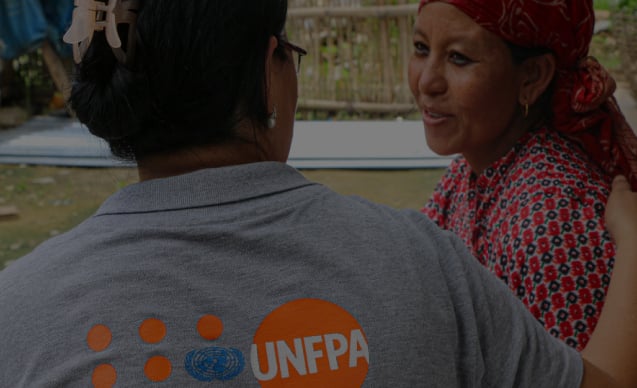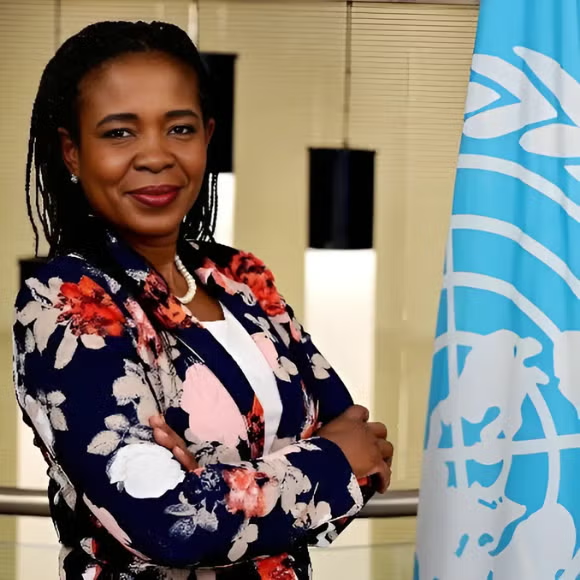UNFPA in Kazakhstan
UNFPA is the lead UN agency for delivering a world where every pregnancy is wanted, every childbirth is safe and every young person's potential is fulfilled.
UNFPA provides technical assistance to the countries to ensure that the reproductive health and rights of women and youth are in the heart of the development.
UNFPA expands the possibilities for women and young people to lead healthy and productive lives.
Since UNFPA started working in 1969, the number – and rate – of women dying from complications of pregnancy or childbirth has been halved. Families are smaller and healthier. Young people are more connected and empowered than ever before.
But not everyone has benefitted equally from this progress. Young women and men often face difficulties in accessing sexual and reproductive health services. Serious barriers still exist for poor women, migrants, ethnic minorities and those who live in rural areas. Often left unprepared by school, young people bear a high risk of unintended pregnancy and sexually transmitted infections. As a result, too many adolescents give birth, too many women resort to unsafe abortions, and the Eastern Europe and Central Asia region has one of the world’s fastest growing HIV epidemics. Women face persistent discrimination and gender-based violence remains widespread.
Much more needs to be done to ensure that all individuals in the region can exercise their basic human rights, including those related to the most intimate and fundamental aspects of life.
And as societies grapple with the effects of population ageing, migration, and in some cases population decline, new policies are needed to build human capital through investment in health, education and job opportunities.
Ensuring every pregnancy is wanted
The number and spacing of a woman’s children has an enormous impact on her life. This is why international agreements (hyperlink to https://www.unfpa.org/icpd) affirm that individuals have the right and the means to freely decide whether, when and how many children their want to have. Today, more than 300 million women in developing countries are using contraception, but more than 214 million women who want to plan their births do not have access to modern family planning.
Supporting maternal health
No woman should die when giving new life. We know the key to saving almost all women who die when giving birth. Planning a pregnancy and spacing children is the key to safe motherhood. Skilled birth attendance at delivery, with backup emergency obstetric care and essential supplies and infrastructure in place, is also critical. Since 1990, maternal mortality has declined by 44 per cent. Still, some 830 women and adolescent girls die each day from preventable causes related to pregnancy and childbirth, and 99 per cent of these deaths occur in developing countries – more than half in fragile and humanitarian settings. UNFPA partners with governments and others to strengthen health systems, train health workers, educate midwives and improve access to the full range of reproductive health.
Ending gender-based violence and harmful practices
As the struggle for gender equality continues, violence against women and girls remains a global pandemic. One in three women will experience physical or sexual violence in her lifetime. And approximately one in four girls in the developing world is married before age 18. UNFPA works to prevent and respond to gender-based violence through its work with policymakers, justice systems, health systems and humanitarian partners. UNFPA also focuses on eliminating harmful practices, including FGM and child marriage, and helps to engage men and boys to advance gender equality
Helping young people fulfill their potential
Today's generation of young people is absolutely massive: some 1.8 billion people are between ages 10 and 24. Most of them live in developing countries, often comprising a huge proportion of the population. How well they navigate adolescence will determine not only the course of their own lives, but that of the world.
But when empowered and given the right opportunities, youth are effective drivers of change. UNFPA partners with young people, helping them participate in decisions affecting them, and strengthening their ability to advance human rights and development issues such as health, education and employment.
Population dynamics
UNFPA supports the strengthening of national data collection and dissemination systems and improving the accessibility of evidence-based analysis on population dynamics and their links to sustainable development, providing support in strengthening national institutional potential on population analysis and population projections, monitoring of progress on the Sustainable Development Goals. UNFPA supports the strengthening of national data collection and dissemination systems and improving the accessibility of evidence-based analysis on population dynamics and their links to sustainable development, providing support in strengthening national institutional potential on population analysis and population projections, monitoring of progress on the Sustainable Development Goals.




